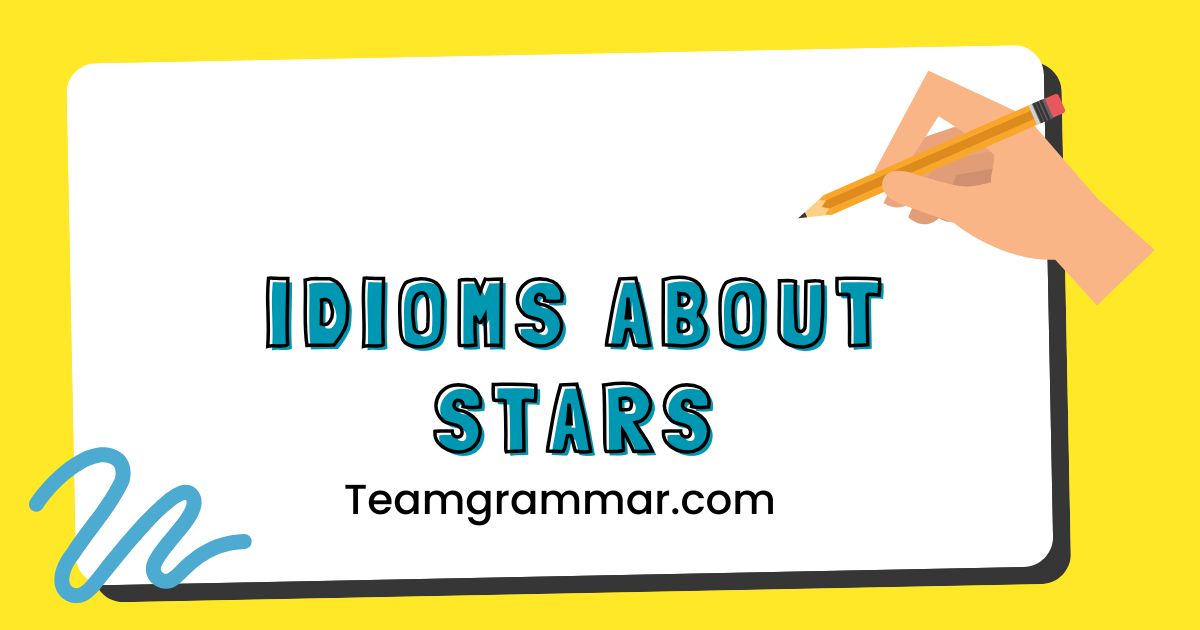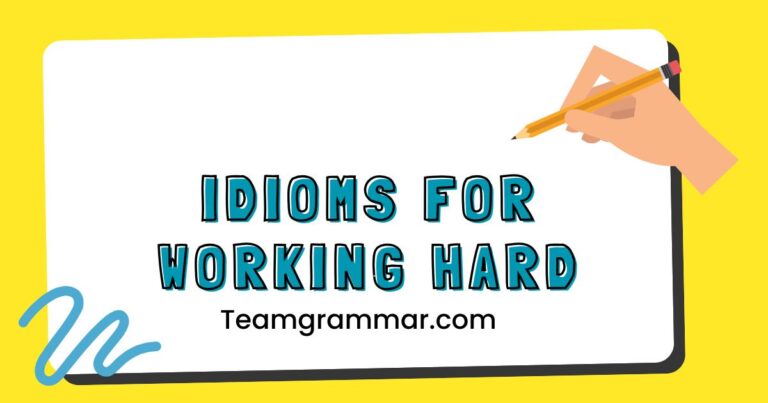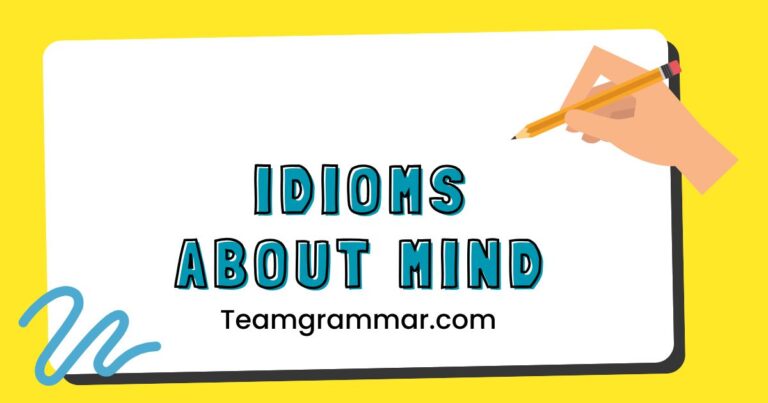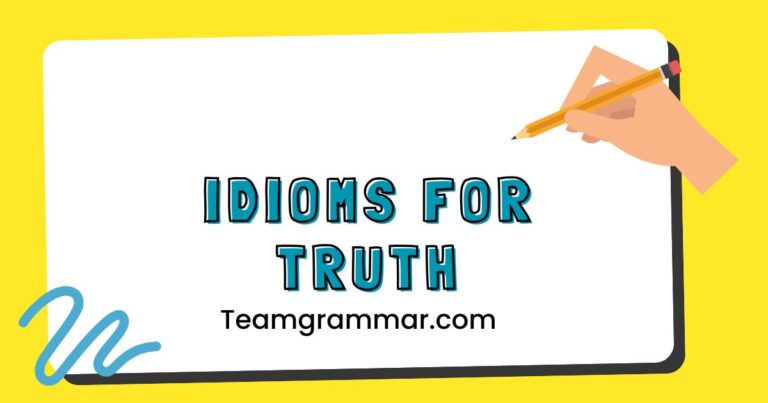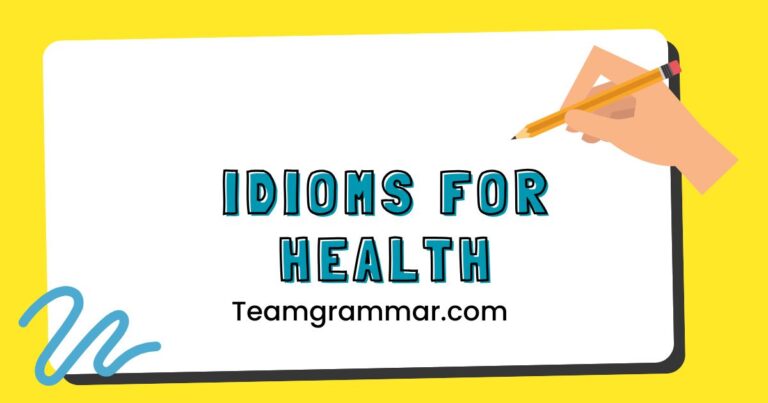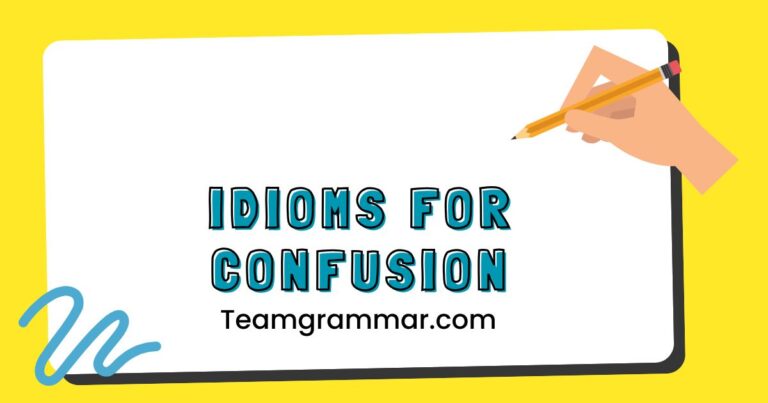39 Idioms About Stars: Shining Examples and Usage Guide
Idioms add color and depth to the English language, often drawing from shared cultural understandings. Among the most evocative are those that use “stars” as a metaphor.
Understanding these idioms not only enriches your vocabulary but also enhances your ability to comprehend nuanced meanings in conversations, literature, and media. This article offers a comprehensive guide to star-related idioms, providing definitions, examples, and practical exercises to help you master their usage.
Whether you’re a beginner or an advanced learner, this guide will illuminate the fascinating world of star idioms.
Table of Contents
- Introduction
- Definition of Idioms About Stars
- Structural Breakdown
- Types and Categories of Star Idioms
- Examples of Idioms About Stars
- Usage Rules
- Common Mistakes
- Practice Exercises
- Advanced Topics
- FAQ
- Conclusion
Definition of Idioms About Stars
Idioms are expressions whose meanings cannot be understood from the literal meanings of the individual words within them. Instead, they carry a figurative or symbolic meaning that is culturally specific.
Idioms about stars leverage the symbolic nature of stars—often associated with guidance, success, fame, destiny, and hope—to convey deeper meanings. These idioms are frequently used to describe people’s aspirations, achievements, and the unpredictable nature of life.
The context in which these idioms are used is crucial for proper interpretation.
Star idioms can be classified based on their function. Some describe a person’s potential or talent (e.g., “born under a lucky star”), while others comment on their success (e.g., “reach for the stars”).
Still others might reflect on the uncertainties of life (e.g., “thank your lucky stars”). Understanding these classifications helps in both interpreting and using them effectively.
The connotations of these idioms range from positive affirmations to cautionary reminders about the fleeting nature of success and fame.
Structural Breakdown
The structure of idioms about stars varies, but they typically involve a combination of nouns, verbs, and prepositions that create a unique phrase. For example, in the idiom “reach for the stars,” “reach” is a verb, “stars” is a noun, and “for” and “the” are prepositions and articles, respectively.
The arrangement of these elements contributes to the overall idiomatic meaning. It’s important to note that changing the word order or replacing words can destroy the idiom’s meaning.
Many star idioms follow common English sentence structures. For instance, they can be part of a subject-verb-object construction, as in “He is reaching for the stars.” They can also appear as prepositional phrases that modify nouns or verbs, such as “born under a lucky star.” Recognizing these structural patterns can help learners identify and understand new idioms more easily.
Furthermore, the tense of the verb within the idiom can change to reflect different time frames (e.g., “He reached for the stars” – past tense).
Types and Categories of Star Idioms
Star idioms can be categorized based on the specific themes they represent. Here are some common categories:
Idioms Related to Success and Fame
These idioms often highlight high achievement, recognition, and the pursuit of excellence. They are frequently used to describe individuals who have attained significant success or are striving for it.
Examples include “reach for the stars,” “be a rising star,” and “stars in one’s eyes.”
Idioms Related to Guidance and Hope
These idioms use stars as a symbol of direction, hope, and positive influence. They often suggest that someone or something is providing guidance or inspiration.
Examples include “follow one’s lucky star” and “thank your lucky stars.”
Idioms Related to Ambition and Aspiration
These idioms emphasize a strong desire to achieve something great, often involving a level of risk or challenge. They reflect the pursuit of lofty goals and the willingness to strive for excellence.
Examples include “shoot for the stars” and “aim for the stars.”
Idioms Related to Fate and Destiny
These idioms suggest that one’s life is influenced by forces beyond their control, often associated with luck or destiny. They reflect the belief that certain events are predetermined or guided by a higher power.
Examples include “born under a lucky star” and “the stars align.”
Examples of Idioms About Stars
To fully understand idioms about stars, it’s essential to examine them in context. The following tables provide examples organized by category, illustrating how these idioms are used in sentences.
Examples Related to Success
The table below lists various idioms related to success, providing example sentences to illustrate their usage. Understanding these examples will help you use the idioms correctly in your own speech and writing.
| Idiom | Meaning | Example Sentence |
|---|---|---|
| Reach for the stars | To aim for ambitious goals. | She always tells her children to reach for the stars and never give up on their dreams. |
| Be a rising star | To be someone who is likely to achieve great success. | He’s a rising star in the company, known for his innovative ideas and hard work. |
| Stars in one’s eyes | To be full of dreams and ambitions. | When she talked about becoming a famous actress, she had stars in her eyes. |
| Be written in the stars | To be destined to happen. | Their meeting seemed to be written in the stars; they met by chance and fell in love instantly. |
| Thank your lucky stars | To be grateful for good fortune. | You should thank your lucky stars that you weren’t injured in the accident. |
| The stars are aligned | Everything is in place for success. | With the new funding and a talented team, the stars are aligned for this project to succeed. |
| Aim for the stars | To set high goals. | Even though it seemed impossible, he decided to aim for the stars and apply for the prestigious scholarship. |
| Born under a lucky star | To be born with good fortune. | She seems to have been born under a lucky star; everything always works out for her. |
| See stars | To experience a momentary blurring of vision due to a blow to the head or sudden exertion. | After hitting his head on the low beam, he saw stars for a few seconds. |
| Star-studded | Featuring many famous or talented people. | The premiere was a star-studded event, with celebrities from all over the world attending. |
| A star is born | Someone new has achieved fame and recognition quickly. | After her incredible performance in the play, everyone agreed that a star is born. |
| Look to the stars | To seek inspiration or guidance from something distant or unattainable. | When he felt lost, he would look to the stars for guidance and a sense of perspective. |
| Reach for the stars, even if you have to stand on a cactus. | Emphasizes that pursuing ambitious goals might involve facing discomfort or challenges. | She knew starting her own business would be tough, but she was determined to reach for the stars, even if she had to stand on a cactus. |
| Hitch your wagon to a star | To associate oneself with someone successful in order to improve one’s own chances of success. | He decided to hitch his wagon to a star by working closely with the company’s CEO. |
| Twinkle in someone’s eye | A lively or mischievous expression in someone’s eyes. | The old man had a twinkle in his eye as he told the story of his youth. |
| Among the stars | In a high or elevated position; figuratively, in a place of honor or fame. | The astronaut dreamed of being among the stars, exploring new worlds. |
| Shoot for the moon. Even if you miss, you’ll land among the stars. | To set extremely high goals; even if you don’t fully achieve them, you’ll still accomplish something great. | Her coach always told her to shoot for the moon. Even if you miss, you’ll land among the stars. |
| See one’s star fading | To experience a decline in popularity or success. | The aging actor could see his star fading as younger talents emerged. |
| Star of the show | The most important or prominent person or thing in a particular situation. | The lead singer was definitely the star of the show, captivating the audience with her voice. |
| Under a lucky star | Experiencing favorable circumstances or good fortune. | They started their business under a lucky star, experiencing immediate success. |
Examples Related to Guidance
The following table provides idioms related to guidance and direction, with example sentences to illustrate their use. These idioms often use stars as symbols of navigation and inspiration.
| Idiom | Meaning | Example Sentence |
|---|---|---|
| Follow one’s lucky star | To be guided by good fortune. | He decided to follow his lucky star and take the unexpected job offer in a new city. |
| Guided by a star | Being led or inspired by a positive influence. | The charity was guided by a star, helping countless people in need with unwavering dedication. |
| Like a guiding star | Serving as a source of inspiration or direction. | Her mentor was like a guiding star, always providing valuable advice and support. |
| Hope is the guiding star | Hope serves as the primary source of direction and inspiration. | During the darkest times, hope is the guiding star that keeps us moving forward. |
| Lost his guiding star | To lose direction or inspiration in life. | After his mentor passed away, he felt like he had lost his guiding star. |
| A star to steer by | A principle or ideal that guides one’s actions. | Integrity was always a star to steer by for her in her business dealings. |
| Set one’s sights on a star | To aim for a very high or ambitious goal. | From a young age, she set her sights on a star, determined to become a renowned scientist. |
| Following a distant star | Pursuing a goal that seems far off or difficult to achieve. | The artist spent years following a distant star, perfecting his craft despite the challenges. |
| A beacon like a star | A source of light and hope, guiding others through difficult times. | Her kindness was a beacon like a star, helping her community overcome adversity. |
| A star in the darkness | A source of hope or guidance in a difficult or uncertain situation. | During the economic crisis, his innovative ideas were a star in the darkness for the company. |
| Shining like a star | Standing out as a positive influence or example. | His dedication to his students made him shining like a star in the education community. |
| Trust your lucky star | Rely on your good fortune or intuition. | When faced with a difficult decision, he decided to trust his lucky star and go with his gut feeling. |
| A star to follow | An example or role model to emulate. | For many young athletes, she is a star to follow, admired for her hard work and dedication. |
| Seeking a northern star | Looking for a fixed point of reference or guidance in life. | He spent years seeking a northern star to help him find his true purpose. |
| Guiding light like a star | A person or thing that provides inspiration and direction. | Her grandmother was her guiding light like a star, always offering wisdom and support. |
| A star to navigate by | A principle or value that helps one make decisions and stay on course. | Honesty was always a star to navigate by for him in his personal and professional life. |
| A star of hope | A source of optimism and encouragement during difficult times. | The peace agreement was seen as a star of hope for the war-torn region. |
| Look up to the stars | To admire and respect someone or something as a source of inspiration. | The young engineer looked up to the stars, aspiring to create innovative technologies. |
| A star to aspire to | A goal or achievement that one strives to reach. | Becoming a successful entrepreneur was a star to aspire to for him. |
| Illuminating like a star | Providing clarity and understanding, like a bright star shining in the dark. | Her explanation was illuminating like a star, making the complex topic easy to understand. |
Examples Related to Ambition
The table below provides idioms related to ambition and aspiration, along with example sentences. These idioms reflect the drive to achieve great things and the pursuit of excellence.
| Idiom | Meaning | Example Sentence |
|---|---|---|
| Shoot for the stars | To aim for something very ambitious. | He always tells his team to shoot for the stars, even if they don’t think they can achieve it. |
| Hitch your wagon to a star | To associate with someone successful to improve your own chances. | She decided to hitch her wagon to a star by volunteering to assist the company’s top executive. |
| Set your sights on the stars | To set very high goals. | The young entrepreneur set his sights on the stars, determined to build a global company. |
| Have stars in your eyes | To be very ambitious and idealistic. | The aspiring actress had stars in her eyes as she dreamed of Hollywood fame. |
| Reaching for distant stars | Pursuing goals that seem unattainable. | The scientists were reaching for distant stars as they researched a cure for the incurable disease. |
| Chase after a star | To pursue an ambitious and perhaps unrealistic goal. | He decided to chase after a star by quitting his job to start his own business. |
| Aspire to be a star | To have a strong desire to achieve fame or success. | Many young musicians aspire to be a star, but few achieve that level of success. |
| Dream of the stars | To have ambitious dreams and aspirations. | She would often dream of the stars, imagining herself as a world-renowned artist. |
| Aim for the highest star | To strive for the greatest possible achievement. | The athlete was determined to aim for the highest star and win the Olympic gold medal. |
| A star to strive for | A goal or ambition that motivates one to work hard. | Becoming a doctor was a star to strive for, driving her to excel in her studies. |
| Set a course for the stars | To commit to a path that leads to great achievements. | The ambitious student set a course for the stars by enrolling in the most challenging programs. |
| Follow the shining star | To pursue a bright and promising opportunity. | He decided to follow the shining star by accepting the prestigious internship. |
| Reach beyond the stars | To push oneself beyond perceived limits. | The innovative company always encouraged its employees to reach beyond the stars. |
| A star within reach | An ambitious goal that is attainable with effort. | Earning her degree felt like a star within reach, motivating her to study hard. |
| Gazing at the stars | Having ambitious dreams and visions for the future. | The young inventor spent hours gazing at the stars, imagining the possibilities of technology. |
| A star to conquer | An ambitious goal that one is determined to achieve. | Becoming CEO was a star to conquer for him, driving him to excel in every role. |
| Striving for the stars | Making a great effort to achieve ambitious goals. | The team was striving for the stars, working tirelessly to launch their new product. |
| A star to capture | An ambitious achievement that one desires to attain. | Winning the championship was a star to capture for the team. |
| Reaching for the unreachable star | Pursuing a goal that seems impossible. | The scientist was reaching for the unreachable star in his quest for a groundbreaking discovery. |
| A star to chase | An ambitious goal that one is actively pursuing. | Success in the music industry was a star to chase for the young artist. |
Examples Related to Fate
The following table provides idioms related to fate and destiny, with example sentences. These idioms often suggest that events are predetermined or influenced by forces beyond our control.
| Idiom | Meaning | Example Sentence |
|---|---|---|
| Born under a lucky star | To be born with good fortune. | She was born under a lucky star; opportunities always seemed to find her. |
| The stars align | When circumstances are favorable for success. | The stars aligned when the company secured funding and a talented team. |
| Thank your lucky stars | To be grateful for good fortune. | You should thank your lucky stars that you weren’t seriously injured in the accident. |
| Written in the stars | To be destined to happen. | Their meeting seemed written in the stars; they met by chance and fell in love. |
| Crossed stars | A situation where fate is against a relationship or venture. | Their love story was one of crossed stars, facing constant obstacles and challenges. |
| The stars foretell | To suggest that the future is predetermined by astrological forces. | Some believe that the stars foretell major events in our lives. |
| Under an unlucky star | To be experiencing bad luck or misfortune. | He felt like he was under an unlucky star after a series of unfortunate events. |
| The influence of the stars | The belief that celestial bodies affect human affairs. | Astrologers study the influence of the stars to understand personality traits and life events. |
| Stars in conjunction | An alignment of celestial bodies believed to bring about significant events. | Some astrologers believe that certain stars in conjunction can bring about positive changes. |
| Stars at odds | A situation where astrological forces are in conflict, leading to challenges. | They felt like their stars were at odds, causing misunderstandings and disagreements. |
| Destined by the stars | To have a fate that is predetermined by astrological forces. | They believed they were destined by the stars to be together. |
| Guided by the constellations | To be influenced by the patterns and forces of the stars. | Ancient mariners were guided by the constellations to navigate the seas. |
| A star-crossed lover | A pair of lovers whose relationship is doomed to fail. | The story of Romeo and Juliet is a classic example of star-crossed lovers. |
| Following a fateful star | To be guided by a force that determines one’s destiny. | He felt like he was following a fateful star, leading him to unexpected adventures. |
| The power of the stars | The perceived influence of celestial bodies on human lives. | Some people believe in the power of the stars to shape their destinies. |
| A celestial sign | An event in the sky that is believed to have a significant meaning. | The appearance of the comet was seen as a celestial sign of impending change. |
| Marked by the stars | To have a destiny that is influenced by astrological forces. | She felt like she was marked by the stars to achieve great things. |
| Under the same stars | To share a common destiny or fate. | They realized they were under the same stars, sharing similar challenges and opportunities. |
| A star of destiny | A celestial body believed to represent one’s fate. | Some cultures believe that each person has a star of destiny that guides their life. |
| Influenced by celestial bodies | To have one’s life shaped by the positions and movements of stars and planets. | Many people believe they are influenced by celestial bodies from the moment they are born. |
Usage Rules
When using idioms about stars, it’s essential to maintain the correct wording and context. Changing the words or using the idiom in an inappropriate situation can lead to confusion or misinterpretation.
For example, “reach for the stars” should not be altered to “grab for the stars,” as the former is the established idiom.
The tense of the verb within the idiom should be adjusted to match the intended meaning. For instance, you can say “He reached for the stars” (past tense) or “She is reaching for the stars” (present continuous tense).
However, the core structure of the idiom should remain consistent. Additionally, ensure that the idiom’s figurative meaning aligns with the context of your sentence.
Avoid using idioms in overly formal or technical writing, as they are generally more appropriate for informal and creative contexts.
Common Mistakes
One common mistake is misunderstanding the meaning of the idiom and using it incorrectly. For example, confusing “born under a lucky star” with simply being lucky can lead to miscommunication.
Another frequent error is altering the wording of the idiom, which can render it meaningless. For instance, saying “aim to the stars” instead of “aim for the stars” changes the idiom and obscures its intended meaning.
Another mistake is using idioms in inappropriate contexts. Overusing idioms can make your writing sound unnatural or cliché.
Also, be mindful of your audience; some idioms may not be familiar to non-native speakers or people from different cultural backgrounds. The table below provides examples of common mistakes and their corrections:
| Incorrect | Correct | Explanation |
|---|---|---|
| Grab for the stars | Reach for the stars | “Reach” is the correct verb used in the idiom. |
| He is a rising sun | He is a rising star | The idiom uses “star,” not “sun,” to denote success. |
| They were writing in the stars | It was written in the stars | The correct phrasing is “written,” not “writing.” |
| Thanking my lucky stars | Thank my lucky stars | The correct form is “thank,” not “thanking.” |
| The stars are aligning to me | The stars are aligned | The idiom does not require “to me.” |
Practice Exercises
Test your understanding of idioms about stars with these practice exercises. Fill in the blanks with the correct idiom from the list provided.
- She decided to __________ and apply for the director position, even though she felt underqualified. (reach for the stars, see stars)
- After the accident, he __________ and had to sit down for a moment. (reach for the stars, see stars)
- He is a __________ in the company, always exceeding expectations. (born under a lucky star, rising star)
- You should __________ that you weren’t caught in the rain without an umbrella. (thank your lucky stars, follow your lucky star)
- It seemed __________ that they would meet again after so many years. (written in the stars, born under a lucky star)
- With the new management and a clear strategy, __________ for the company’s growth. (the stars are aligned, followed his lucky star)
- He decided to __________ and move to a new city for better career opportunities. (follow his lucky star, see stars)
- She was __________; everything always seemed to work out in her favor. (born under a lucky star, rising star)
- The film festival was a __________ event, attracting celebrities from all over the world. (star-crossed, star-studded)
- After her amazing performance, everyone knew that __________. (a star is born, the stars aligned)
Here are the answers to the practice exercise:
- reach for the stars
- saw stars
- rising star
- thank your lucky stars
- written in the stars
- the stars are aligned
- follow his lucky star
- born under a lucky star
- star-studded
- a star is born
Here is another practice exercise:
- The young entrepreneur decided to __________ by investing in a risky startup. (shoot for the stars, born under a lucky star)
- She __________ when she spoke about her dreams of becoming a famous author. (had stars in her eyes, thanked her lucky stars)
- The couple’s relationship was __________, facing constant disapproval from their families. (star-studded, star-crossed)
- He always told his children to __________ and never settle for mediocrity. (reach for the stars, thank their lucky stars)
- The aging actor could see __________ as younger talents took the spotlight. (his star fading, stars in his eyes)
- She decided to __________ by working closely with the CEO. (hitch her wagon to a star, thank her lucky stars)
- The project was successful because __________, allowing all the necessary resources to come together seamlessly. (the stars aligned, his star faded)
- After winning the prestigious award, he was hailed as __________. (a rising star, star-crossed)
- They decided to __________ and open a small business in their hometown. (aim for the stars, see stars)
- He often __________ when he felt lost and needed guidance. (looked to the stars, thanked his lucky stars)
Here are the answers to the second practice exercise:
- shoot for the stars
- had stars in her eyes
- star-crossed
- reach for the stars
- his star fading
- hitch her wagon to a star
- the stars aligned
- a rising star
- aim for the stars
- looked to the stars
Advanced Topics
For advanced learners, exploring the cultural and historical contexts of star idioms can provide deeper insights. Many of these idioms have roots in ancient mythology, astrology, and literature.
Understanding these origins can enhance your appreciation of their nuanced meanings.
Additionally, analyzing how different cultures use similar metaphors can be a fascinating study. While the specific idioms may vary, the underlying themes of guidance, success, and destiny are often universal.
Exploring the use of star imagery in poetry, literature, and music can also provide a richer understanding of these idioms. For example, Shakespeare’s use of star imagery in “Romeo and Juliet” adds layers of meaning to the play’s themes of fate and love.
Furthermore, comparative analysis of star idioms across different languages can reveal interesting cultural perspectives on ambition, success, and destiny. For instance, some languages may have idioms that emphasize the collective effort needed to achieve great things, while others focus on individual achievement.
FAQ
- What is an idiom?
An idiom is a phrase or expression whose meaning cannot be understood from the literal meanings of its individual words. It’s a figurative expression with a culturally specific meaning.
- Why are idioms important to learn?
Idioms add color and depth to the English language. Understanding them enhances your ability to comprehend nuanced meanings in conversations, literature, and media. They’re also essential for sounding natural and fluent in English.
- How can I learn idioms more effectively?
Immerse yourself in the language by reading books, watching movies, and listening to podcasts. Pay attention to how native speakers use idioms in context. Keep a notebook of new idioms and practice using them in your own speech and writing.
- Are idioms the same in all languages?
No, idioms are culturally specific and vary from language to language. While some languages may have similar idioms, their specific wording and connotations often differ.
- What does “reach for the stars” mean?
“Reach for the stars” means to aim for ambitious goals and not be afraid to pursue your dreams, no matter how difficult they may seem.
- When should I use idioms in my writing?
Use idioms sparingly and in appropriate contexts. They are generally more suitable for informal and creative writing than for formal or technical writing. Ensure that your audience will understand the idiom’s meaning.
- What is the origin of the idiom “born under a lucky star”?
The idiom “born under a lucky star” has roots in astrology, where the position of the stars at the time of a person’s birth was believed to influence their destiny. Being born under a favorable alignment was thought to bring good fortune.
- How can I avoid misusing idioms?
Pay close attention to the context in which idioms are used. Double-check the meaning of unfamiliar idioms before using them. Avoid altering the wording of established idioms. Practice using idioms in sentences to ensure you understand their proper usage.
- Is it okay to use idioms in formal presentations?
It depends on the tone and audience of your presentation. In general, it’s best to avoid idioms in very formal presentations, such as academic conferences or business meetings with senior executives. However, if your presentation is more informal and aims to connect with the audience
on a personal level, using idioms sparingly can add color and engagement.
- Can idioms be translated directly into other languages?
Usually not. Idioms are often culturally specific, and a direct translation may not make sense or convey the same meaning in another language. It’s better to find an equivalent idiom in the target language that carries a similar figurative meaning.
Conclusion
Idioms about stars offer a fascinating glimpse into the figurative language and cultural symbolism associated with celestial bodies. By understanding the definitions, structural nuances, and usage rules of these idioms, you can enhance your English proficiency and communicate more effectively.
From idioms related to success and ambition to those reflecting fate and guidance, the world of star idioms is rich and diverse.
Continue to practice using these idioms in your speech and writing, and explore their cultural and historical contexts to deepen your understanding. With consistent effort, you’ll find that mastering idioms about stars can add a touch of brilliance to your language skills.
So, keep reaching for the stars and aiming for excellence in your linguistic journey!

